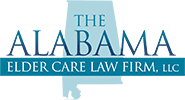Veterans Benefits are perhaps the most misunderstood and underutilized resources available to millions of veterans and their families. While it is commonly known that certain benefits are available for the brave men and women who served in our armed forces, many veterans and their families are unaware that they could be eligible for an even wider range of benefits through the United States Department of Veterans Affairs (VA), even if they did not directly retire from the military or suffer injuries in the line of duty.
Veterans Benefits offered to eligible beneficiaries include:
- Burial and Memorial: In exchange for the service that veterans have selflessly given to the United States, the Department of Veterans Affairs and the Department of Defense provide several memorial and burial services for eligible active-duty, Reserve, Guard, retired and veteran members. All veterans and military family members should be aware of the memorial benefits offered by the Department of Veterans Affairs before they are actually needed.
- Death Pension: The VA Death Pension is a benefit paid to eligible dependents of deceased wartime veterans.
- Dependency and Indemnity Compensation: This is a monthly benefit paid to eligible survivors of certain deceased veterans.
- Disability Compensation: Certain military veterans with a service-related disability may qualify for regular monthly benefits. These benefits are generally tax-free and are paid to veterans who have injuries or diseases that occurred while on active duty, or were aggravated and made worse by active military service. It is also paid to certain veterans disabled as a result of care provided by VA medical facilities.
- Employment & Training: The Department of Veterans Affairs, Department of Labor and the Department of Education all administer a number of employment, education, and training programs for veterans. These programs include, but are not limited to The Montgomery G.I. Bill – Active Duty, The Montgomery G.I. Bill – Selected Reserve, Veterans’ Educational Assistance Program (VEAP), Veterans Upward Bound and Veterans’ Employment and Training.
- Parents DIC: Parents’ Dependency and Indemnity Compensation is an income-based monthly benefit for the parents of a military service member or veteran who has died.
- Special Monthly Compensation: Special Monthly Compensation (SMC) is a monetary compensation (in addition to the regular VA Disability Compensation) to a veteran who, as a result of military service, incurred the loss or the loss of use of specific organs or extremities. Loss, or loss of use, is described as either an amputation or having no effective remaining function of an extremity or organ.
- Survivor Benefits: Surviving family members of veterans are entitled to certain benefits that can help ease their financial difficulties. When a loved one dies, it can be emotionally difficult to look into available benefits, but this process should be done as soon as possible to prevent eligibility problems.
Veterans Health Care: The Veterans’ Health Care Eligibility Reform Act was passed by Congress in October of 1996, paving the way for the Medical Benefits Package plan to be made available to all enrolled veterans. The Medical Benefits Package emphasizes preventive and primary care and offers a full range of inpatient and outpatient services.
In addition, combat veterans returning from active military service may be eligible to receive free health care services and nursing home care for up to two years, beginning on the date of separation from active military service. This benefit covers all illnesses and injuries except those clearly unrelated to military service. Dental services are not included in this health care package.
- Veterans Life Insurance: Servicemembers’ Group Life Insurance (SGLI) is a program which provides low cost group life insurance to service members on active duty, ready reservists, members of the National Guard, members of the Commissioned Corps of the National Oceanic and Atmospheric Administration and the Public Health Service, cadets and midshipmen of the four service academies and members of the Reserve Officer Training Corps.
